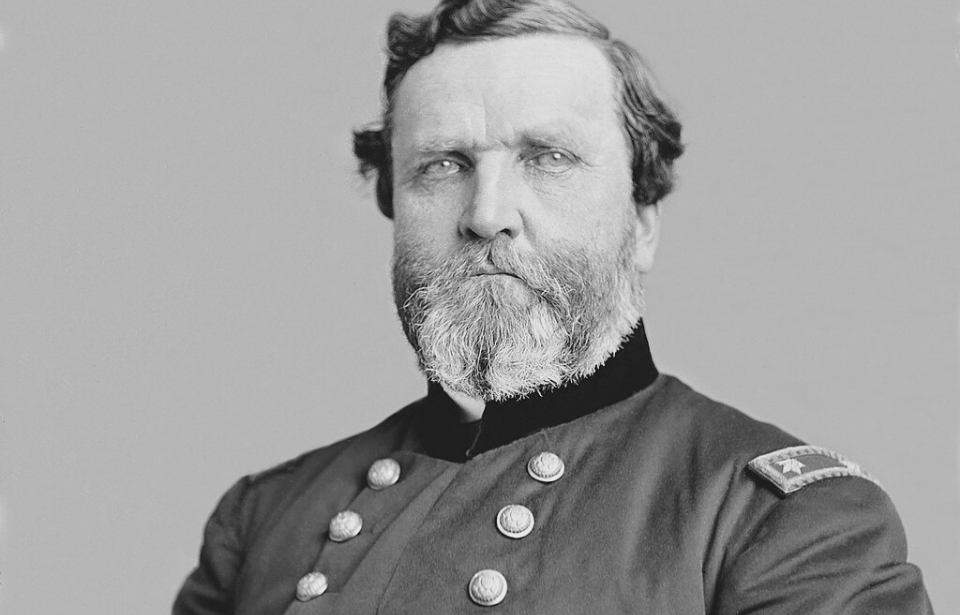The two most famous Union generals of the American Civil War are William Tecumseh Sherman and Ulysses S. Grant. One other name that should be grouped in with them is George Henry Thomas. Despite being a Virginian graduate of West Point, Thomas fought with the North and became the only Union general to never lose a battle.
The Southampton Insurrection had an effect on Thomas during his youth
George H. Thomas was born in Newsoms, Virginia in 1816. His family was wealthy, lived on a 685-acre plantation and owned 15 slaves. Due to this, they were forced to hide in the woods during Nat Turner’s Slave Rebellion, also known as the Southampton Insurrection.
While sources vary, the event is said to have had an effect on how Thomas viewed slavery. One story notes he taught his family’s slaves to read, against his father’s wishes and Virginia law.
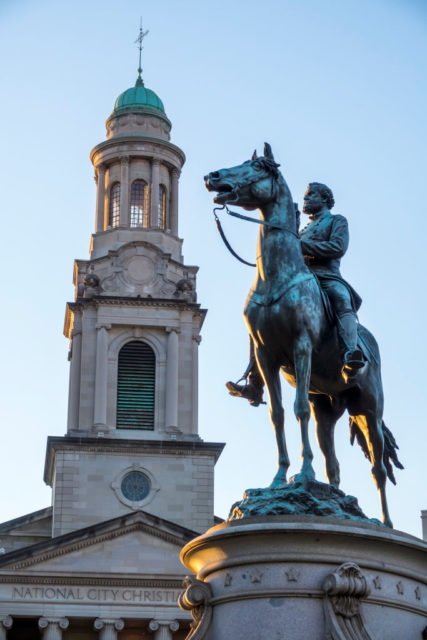
Thomas entered West Point in 1836. His classmates nicknamed him “Old Tom” because he was 20 years old. During his time in school, he became lifelong friends with Stewart Van Vliet and William Sherman. Thomas graduated 12th in his class and began his military career appointed a second lieutenant in Company D, 3rd US Artillery. His first assignment was at an outpost in Fort Lauderdale, Florida during the Seminole Wars.
Thomas learned important lessons during the Mexican-American War
George H. Thomas saw heavy action while commanding his regiment during the Mexican-American War. He established himself during the siege of Fort Texas and the battles at Buena Vista, Monterrey and Resaca de la Palma. General Zachary Taylor wrote of Buena Vista, “The services of the light artillery, always conspicuous, were more than unusually distinguished.”
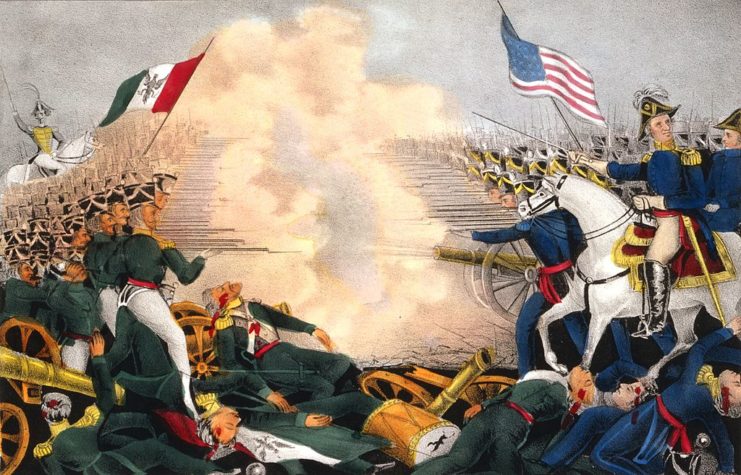
Thomas earned three Brevet promotions over the course of the conflict. The future general also learned from the American performance in the war, which was marred by poor planning. Going forward, he made a point of always being prepared, even if that meant his troops seemed slow to the battle.
Thomas makes a difficult decision at the outset of the American Civil War
Many of the most famous Confederate generals, such Stonewall Jackson and Robert E. Lee, were from Virginia, as was George H. Thomas. Despite this, he chose to fight with the Union Army. This decision was made, in part, because Thomas’ wife was from the North. His family turned their back on him, claiming they no longer had a brother or son.
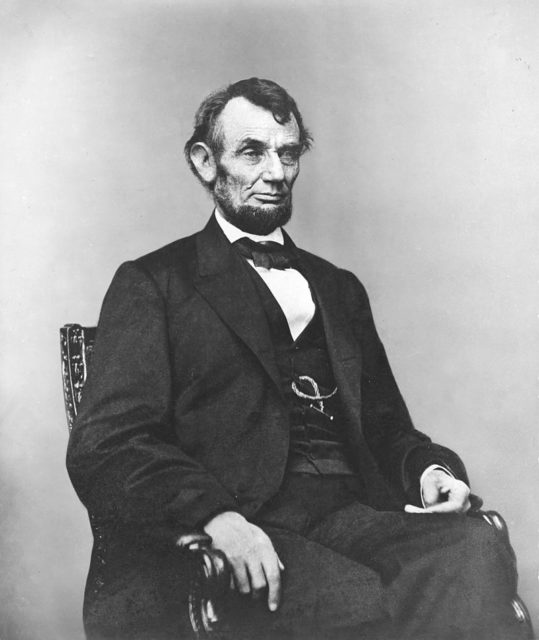
The decision also made it so that few people on either side trusted Thomas. Confederate leaders, many of whom had gone to West Point or served with him in battle, considered him a traitor. Confederate Colonel J.E.B. Stuart wrote in a letter to his wife, “Old George H. Thomas is in command of the cavalry of the enemy. I would like to hang, hang him as a traitor to his native state.”
The decision to fight for the North also meant Union leaders never fully trusted him, including Abraham Lincoln and other Union officers. At the end of the day, that didn’t matter. Thomas was committed to doing his job – and did it extraordinarily well.
“The Rock of Chickamauga”
While there were some concerns about Thomas’ loyalty, he more than proved himself in battle. Following the Battle of Shiloh, he was promoted to the rank of major general. Thomas, again, earned praise for his command during the Battle of Cumberland Gap. In a stunning Union victory, Thomas’ troops stormed the Confederate line on Missionary Bridge.
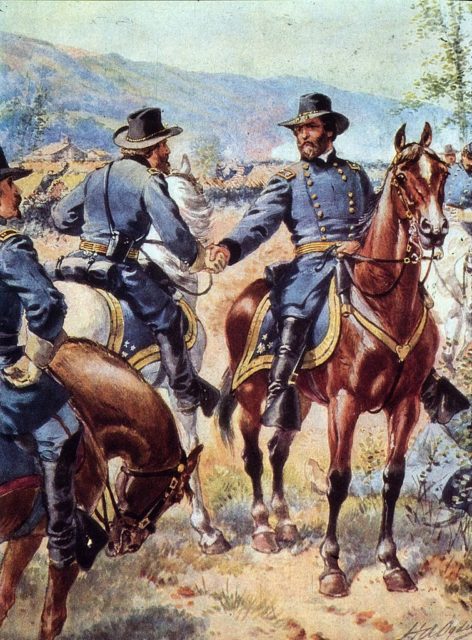
It was his next engagement that earned Thomas the nickname “the Rock of Chickamauga.” At Chickamauga, Confederate General Braxton Bragg laid waste to the right side of the Union line. Despite terrible odds, Thomas’ unit (he was then commanding the XIV Corps) held their line and prevented a total disaster.
He later won a major victory at the Battle of Nashville, and also participated in Sherman’s March to the Sea.
Thomas’ later life and legacy
After the Civil War, George H. Thomas commanded the Department of the Cumberland. He often used forces to defend newly freed slaves over White abuses and used troops to counter the Ku Klux Klan. The former general also rejected efforts by the Confederacy to paint themselves in a positive light. He wrote in 1868:
“The greatest efforts made by the defeated insurgents since the close of the war have been to promulgate the idea that the cause of liberty, justice, humanity, equality, and all the calendar of the virtues of freedom, suffered violence and wrong when the effort for southern independence failed. This is, of course, intended as a species of political cant, whereby the crime of treason might be covered with a counterfeit varnish of patriotism.”
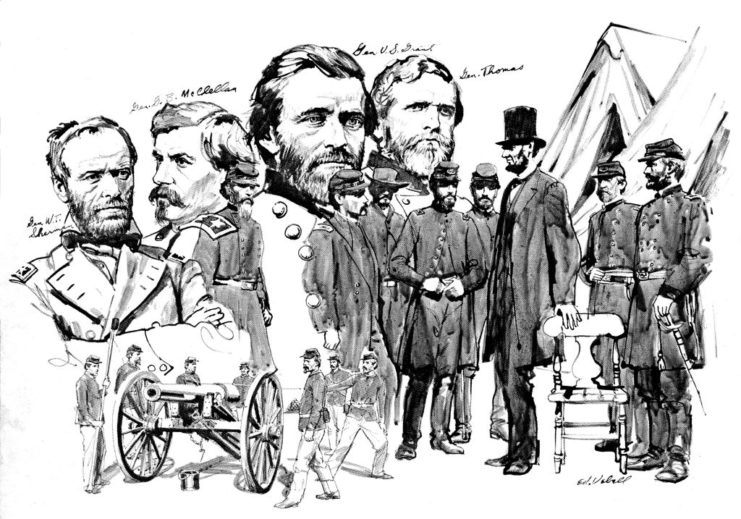
In 1869, President Andrew Johnson offered Thomas the rank of lieutenant general, with the thought he would eventually become general-in-chief. He turned down the position, worried about the political optics.
A year later, Thomas passed. His funeral was attended by Union luminaries like Grant and Sherman. However, no members of his family were in attendance. They never forgave him for fighting for the Union.
